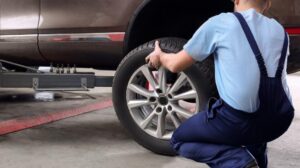When it comes to taking care of our vehicles, there are many misconceptions and myths that can lead us astray. These false beliefs often stem from outdated information or simply a lack of understanding about how cars work. In this article, we aim to debunk some of the most common car care misconceptions, helping you separate fact from fiction.
Myth 1: You Should Change Your Oil Every 3,000 Miles
One of the most enduring car care myths is the notion that you need to change your oil every 3,000 miles. While this used to be true in the past, modern engines and synthetic oils have extended the recommended oil change interval. Most manufacturers now suggest changing the oil between 7,500 to 10,000 miles or every six months, whichever comes first. It’s important to consult your vehicle’s owner manual for the manufacturer’s specific recommendations.
Myth 2: Premium Fuel is Always Better
Another common misconception is that premium fuel is always better for your car. While some high-performance vehicles may require premium fuel, most cars on the road today are designed to run perfectly fine on regular unleaded gasoline. Using premium fuel in a car that doesn’t require it is simply a waste of money.
Myth 3: You Should Warm Up Your Car Before Driving
Many people believe that you need to warm up your car’s engine before driving, especially in cold weather. However, this is no longer necessary with modern cars. In fact, idling your car for an extended period can actually be harmful to the engine. The best way to warm up your car is to start driving gently after a few seconds of idling.
Myth 4: You Should Inflate Your Tires to the Maximum PSI
Some drivers think that inflating their tires to the maximum recommended PSI will improve fuel efficiency and extend tire life. However, this is not true. Overinflating your tires can lead to uneven wear and a harsher ride. It’s important to follow the manufacturer’s recommended tire pressure, which can usually be found on a sticker inside the driver’s side door jamb.
Myth 5: You Can Use Water Instead of Windshield Washer Fluid
Using water instead of windshield washer fluid may seem like a cost-saving measure, but it can actually do more harm than good. Water does not have the same cleaning and de-icing properties as washer fluid, and it can freeze in cold weather, potentially damaging the washer system. It’s always best to use a good quality windshield washer fluid to ensure clear visibility.
By debunking these common car care misconceptions, we hope to help you make informed decisions about maintaining your vehicle. Remember, it’s always a good idea to consult your vehicle’s owner manual and follow the manufacturer’s recommendations for the best care and performance.
If you want to learn more about car maintenance and get expert advice on keeping your vehicle in top shape, visit AutoAdvisor. They provide a wealth of information and resources to help you become a more knowledgeable car owner.
Inspiration: This article was inspired by the numerous car care myths and misconceptions that continue to circulate among car owners. We believe that debunking these myths is crucial to helping people make informed decisions about their vehicle maintenance.




